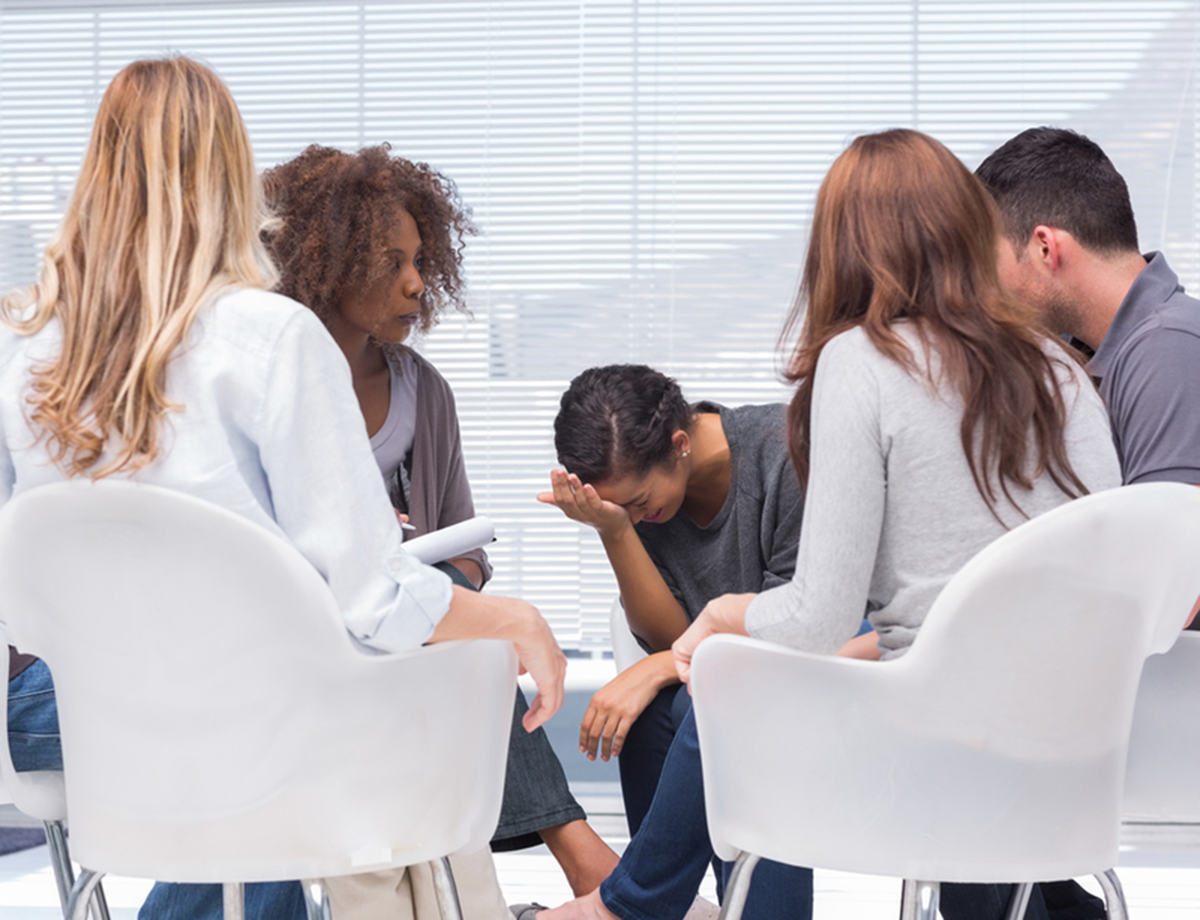Antidepressants and talk therapy form the backbone of treatment for depression, but they're far from the only things that help people on their path to overcoming this common mental illness. Exercise, goal-setting, spending time outside, and meditation can all be part of the journey, for instance. Support groups, too, can play an important role as you go through depression and recover from it. What does everyone need to know about support groups for depression before they take the plunge and join one?

1. Depression support groups aren't group therapy
Many kinds of talk therapy can be conducted in a group setting, by a licensed therapist. That's group therapy, and it benefits many people going through all kinds of struggles, from bereavement to substance abuse and of course depression. Support groups, on the other hand, may be run by licensed therapists, but not necessarily so.
2. That doesn't mean depression support groups aren't helpful
Research shows that attending a peer support group for depression leads to more favorable outcomes than receiving the "usual care" for depression alone — this would be antidepressants, individual talk therapy, or a combination of both. Some studies even show that support group attendance has similar results to attending group cognitive behavioral therapy. This may be for several reasons. A support group can help you come out of social isolation, find people who understand what you are going through, and learn from others' experiences.
3. You have probably already joined a support group — on the internet
One study showed that one fifth of people in the US looked at information about depression, anxiety, or other mental health struggles online. Many of those affected also join online discussion groups (forums, Facebook groups, etc) to share their struggles with others online, anonymously or otherwise. Some are completely built by people with depression themselves, while others are set up by professional organizations. The Anxiety and Depression Association of America has an online anonymous support group, for instance.
These online communities, which are particularly popular among people with depression according to research, are indeed support groups. It isn't yet clear how effective these online support groups are relative to in-person depression support groups, but it seems that they make internet-based therapy interventions more successful.
4. Depression support groups don't necessarily just exist to talk about depression
Social withdrawal and loss of interest in everyday activities are, of course, two common symptoms of depression. (Re)establishing a routine and engaging in social interactions frequently are two bits of advice often given to depressed people. Depression support groups can help you here, too, as many don't just exist to sit around talking about your symptoms and struggles in Alcoholics Anonymous fashion. Many depression support groups also organize things like:
- Social outings
- Exercise sessions
- Meditation
- Walks outside
5. There may be a depression support group tailored to your exact circumstances
Whether you suffer from postpartum depression, are an older adult, are HIV positive, have cancer, are transgender, suffer from chronic pain, have recently lost a loved one as well as being diagnosed with depression, or have depression in any other circumstances, there may be a local depression support group specifically designed for people in a very similar boat — and there will definitely be an online support group (or 1000). Joining a depression support group whose members face the same struggles makes it easier to gain validation, recognition, and support from people who really do understand what you are going through.
6. How do you find a support group for depression?
7. Depression support groups shouldn't be your sole treatment
This may be obvious, but we're going to say it anyway. People with moderate to severe depression should be offered both antidepressants and talk therapy, both of which have been proven to be effective interventions for depression. If you're only just realizing you're depressed, talking to people on an online support group may be what nudges you to seek treatment. However, depression support groups should never be the only treatment you have — you are most likely to have a speedy recovery if you also get antidepressants, therapy, or both. A support group is a kind of "complementary" treatment; you attend one in addition to — not instead of — accessing other treatments.
8. Don't worry — you don't have to share
The right support group for you isn't going to try to force you to share your life story before you're ready, or at all. Don't think you have to be willing to open up immediately to "qualify" to attend a depression support group. You may still benefit if you only show up and listen. With time, if you feel ready to share or have questions you want to ask, participate actively.
- Photo courtesy of SteadyHealth


Your thoughts on this